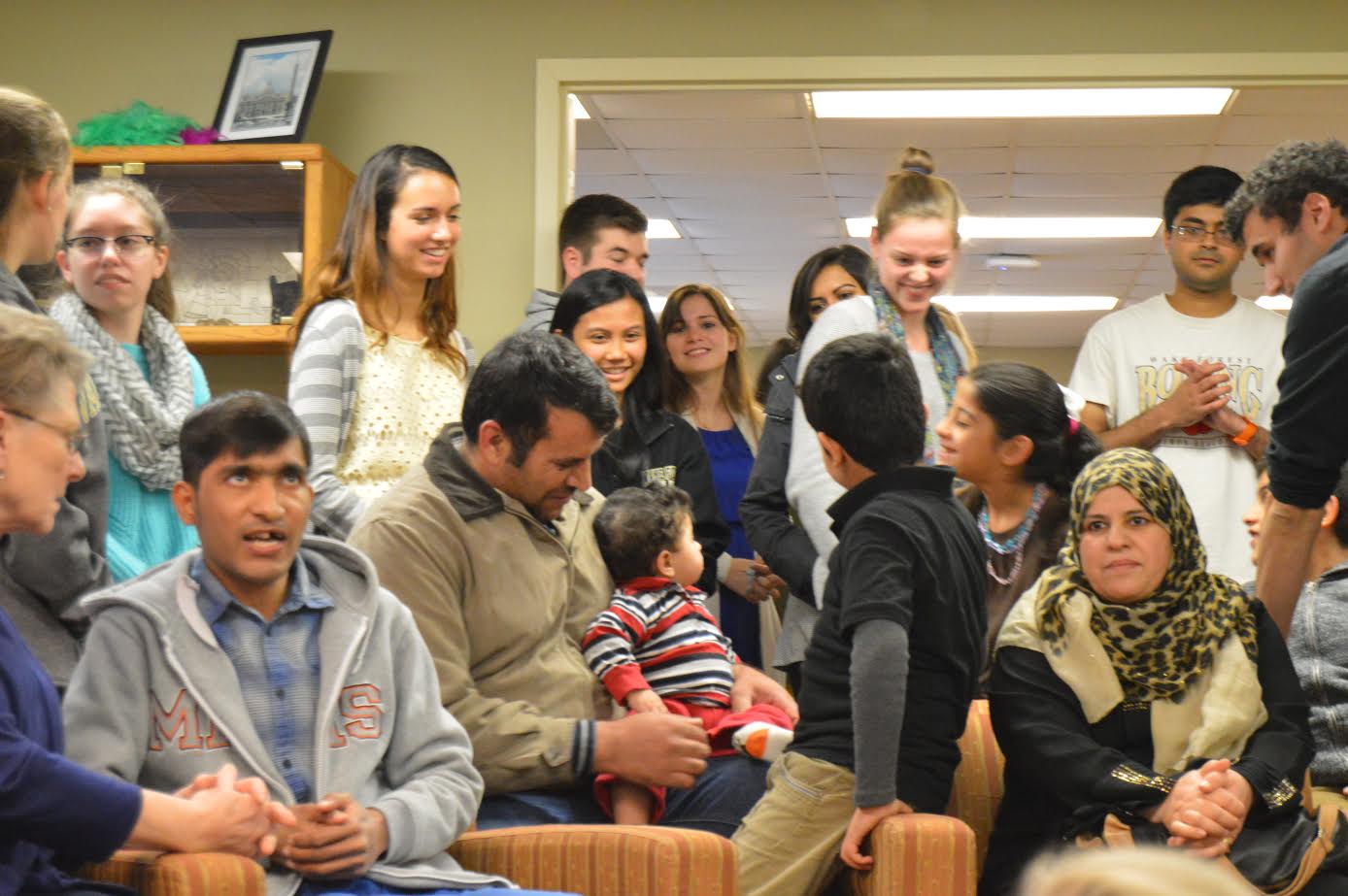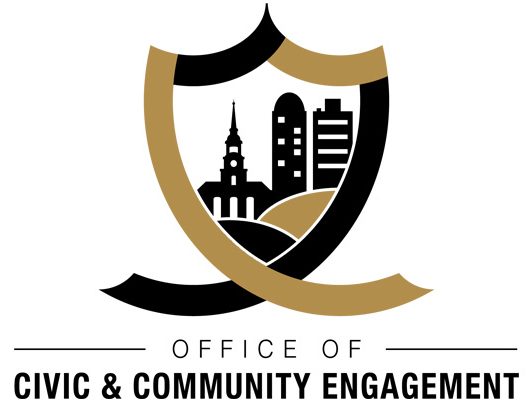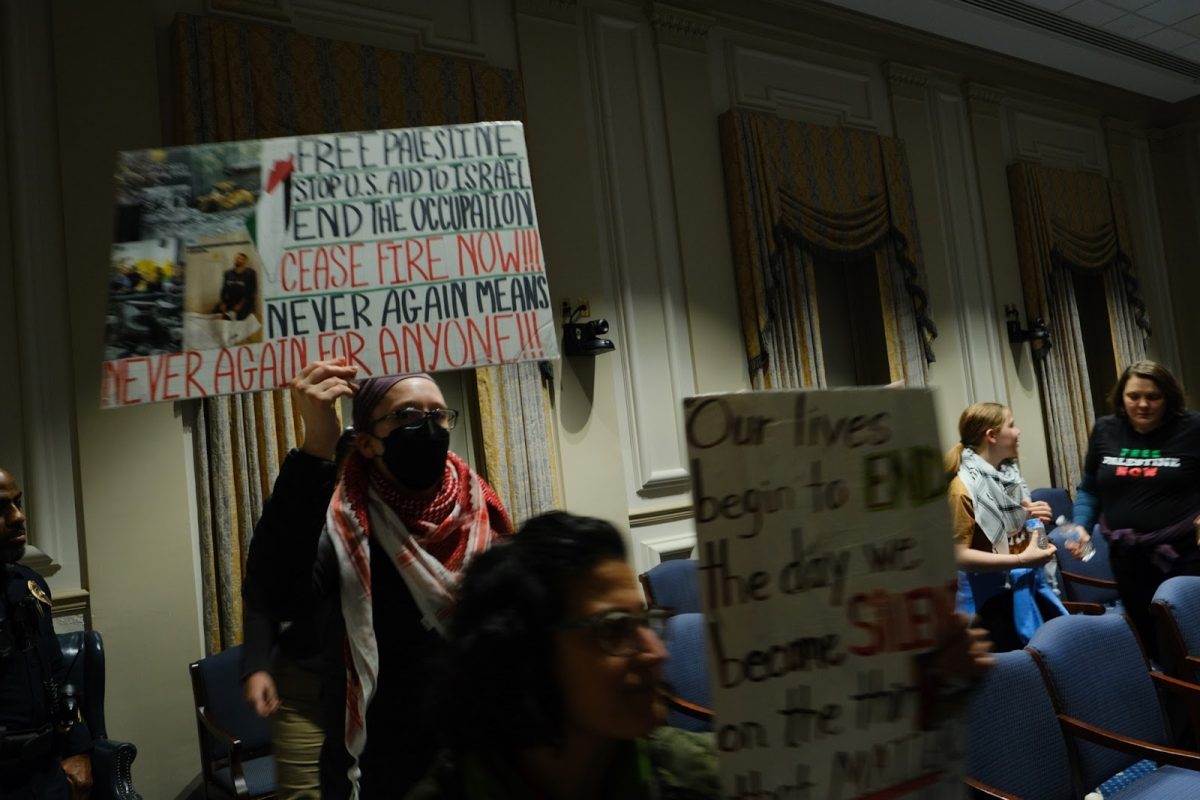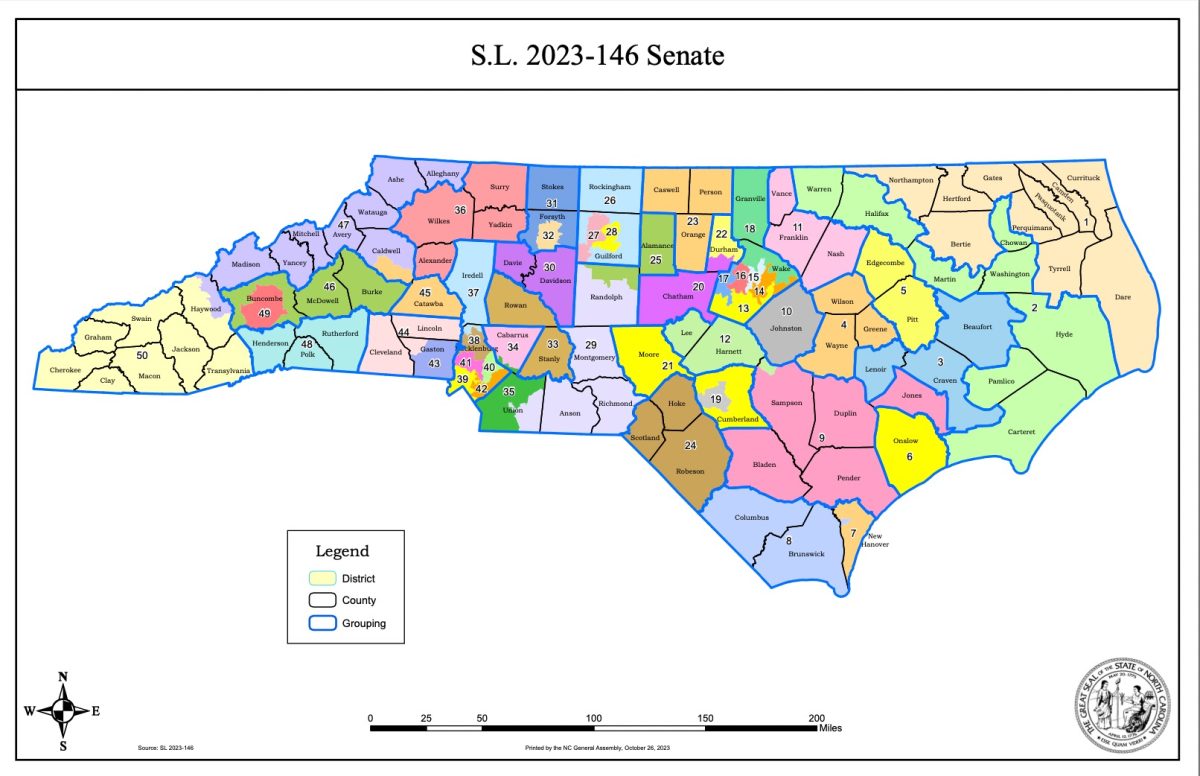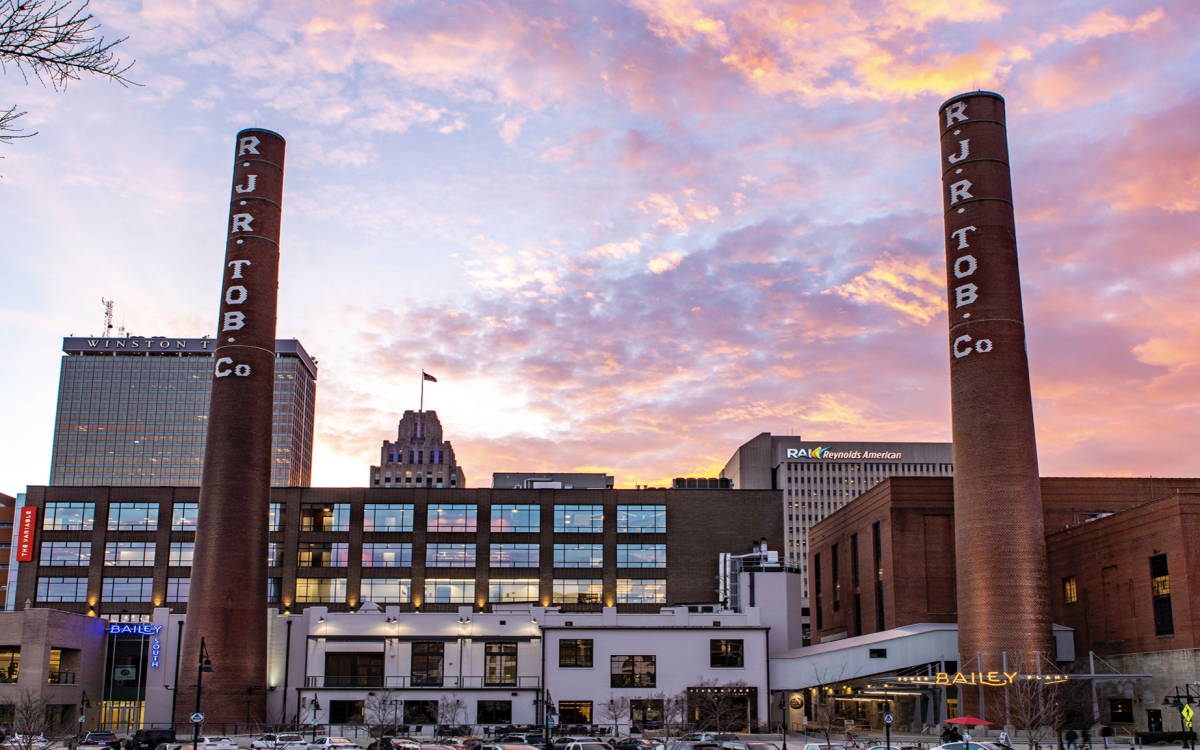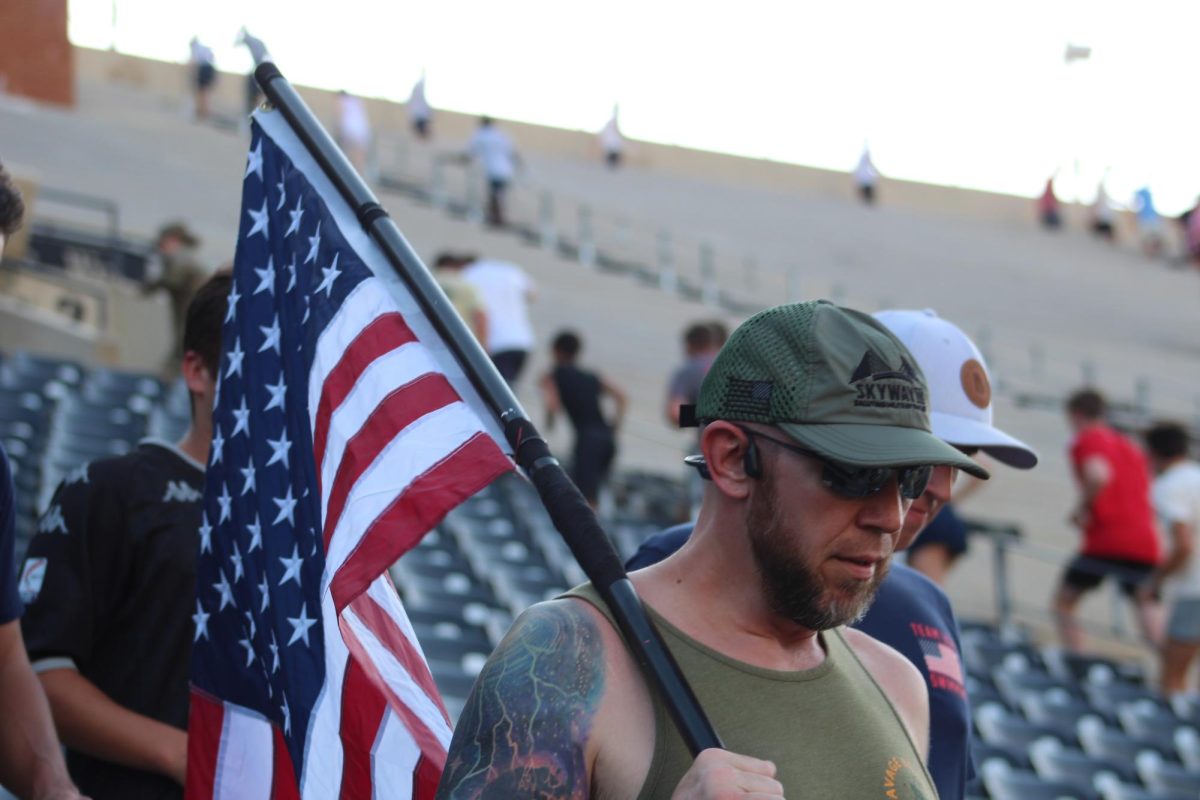The smell of hot beef dumplings and seasoned vegetables fills the Catholic lounge, as young children race through Collins’ dorm halls, mouths watering and ready to eat.
Parents greet one another with smiles and hugs, then find seats among students spread throughout Collins’ basement.
Last Wednesday was no ordinary Catholic dinner.
In celebrating Islam Awareness Week (March 20-25), the Muslim Student Association (MSA) joined the Catholic Community’s usual Wednesday night dinner. However, what made this combined dinner special was that the MSA invited Syrian refugees to the event.
“The evening was a great opportunity for people of different religions to come together and engage in interesting conversation,” said freshman Frederieke Demas.
As everyone gathered around the table, both the Catholic Campus Minister, Fr. Marcel Amadi, and president of MSA, Faraz Ahmed, began the evening with a prayer.
Muslim Chaplain Imam Griggs had been working with refugees for some time and last semester he inspired MSA to join him and volunteer as translators for families that do not speak English. According to Ahmed, members of MSA enjoyed their experiences with the families so much, they wanted to find ways they could get more involved and acquainted with the refugees.
“We wanted to host an event during Islam Awareness Week where we could have the community meet the refugees and learn about their experiences,”said freshman MSA member Ammar Idris. “This is why we teamed up with the Catholic Community for the dinner Wednesday night.”
MSA meets refugees when they first arrive in the U.S. and welcomes them into the community while they wait to meet larger organizations like World Relief.
“The State Department has a contract with World Relief,” said Anna Rubin, who had worked for World Relief but was recently laid off due to the White House’s executive order relating to the travel ban. “After the refugees are vetted and assigned to the U.S., the state department assigns the families to one of the nine resettlement agencies.”
The resettlement agency is responsible for providing the families with housing and bare minimums, and all refugees are required to seek employment when they arrive in the U.S. Each refugee also receives a $925 stipend, which typically lasts about three months, according to Rubin. When the stipend runs out, Muslim communities, such as MSA, will often step in to help the families.
“I really love interacting with the families because I have friends and family who come from similar backgrounds, so I feel I can sympathize with the refugees,” Idris said. “It’s also a great opportunity to speak Arabic with people of similar backgrounds to mine.”
“Everyone has their own story. Opportunities like this dinner are important to take advantage of because they give us the chance to learn another person’s story,” said Shereen Gomaa, a member of the Islamic Center who volunteered to cook dinner for the families Wednesday night.
When dinner, which consisted of traditional Middle Eastern cuisine and Domino’s pizza, was served and students and families sat together, the Collins basement quickly transformed into a lively discussion.
Sixteen-year-old Raghad Alahmad shared her journey from Syria to the U.S. with a group of students.
“My family and I have been in the U.S. for two years,” Alahmad said. “We left Syria when I was 11 years old and were sent to Lebanon. While we were there, my siblings and I were not allowed to go to school because we’re Syrian. The International Organization for Migration gave my family the option of moving to Australia, Germany, or the U.S.”
Alahmad’s mother did not know a lot about any of the countries, but chose the U.S. because she was told it has a strong education system. After a year of processing her family’s information, Alahmad and her family were sent to the U.S.
“A lot of my family is still in Syria,” Alahmad said. “It’s incredibly hard watching the destruction back home on the news.”
Seventeen-year-old Farah Alsakhita, a friend of Alahmad, also shared her story.
“My family is spread out all over the world,” Alsakhita said. “I have family in Syria, Egypt, Saudi Arabia and Turkey. The United Nations did not tell my family where we would be sent when we left Syria. They spent two years studying my family to make sure we were safe.”
“We both want to return to Syria eventually and rebuild our country,” Alahmad said.
Whether it be cooking dinner for the families like Gomaa or simply having a conversation with the families like the students and members of MSA, everyone at the dinner expressed their desire to help the refugees.
“At the end of the day, we want to show the whole community that we are not as different as everyone thinks we are,” Ahmed said. “After seeing the success of the event, we will absolutely host various events that people in the community and refugee families can join and take part in. We want to continue to do these sorts of gatherings because it brings joy not only to the families, but also to everyone who gets to meet them.”

